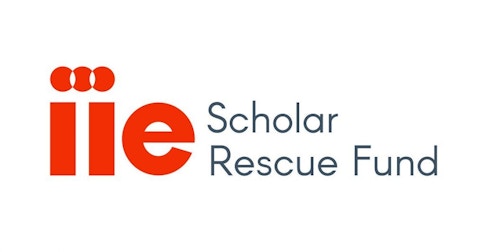Simons Foundation Partners with Institute of International Education’s Scholar Rescue Fund

Around the world, many scholars face persecution because of their academic work, their identity or their political activism. Others are coerced into using their scientific expertise to further the agendas of governments or political actors. And still others are unable to pursue their work safely because of civil or international conflicts. In recent years, the number of scholars in need of protection has only grown. But when their lives and work can be protected, these scholars’ unique perspectives offer the potential to enrich the intellectual discourse of their home countries and the world.
Recognizing this, the Simons Foundation is pleased to announce that it has extended its partnership with the Institute of International Education’s Scholar Rescue Fund (IIE-SRF), a global program that provides fellowships for threatened and displaced scholars to pursue their research and teaching at higher education institutions around the world. The partnership will help support scholars in mathematics, theoretical physics and computer science.
“Today, an unprecedented number of academics face threats amidst escalating and entrenched conflicts worldwide,” says James R. King, IIE-SRF’s director. “The generous support from the Simons Foundation has enabled us both to extend critical assistance to more scholars in need and to pair those in STEM fields with world-class institutions.”
IIE has been supporting threatened scholars since its founding a century ago, when it launched an initiative to help more than 600 Russian students and scholars caught in the crossfire of the Bolshevik Revolution to reach safety in Europe and the United States. Twenty years ago, the organization established IIE-SRF, which since its founding has provided fellowships to nearly 1,000 scholars from 60 countries to do research and teach at host institutions in 51 countries. “It really is a global initiative,” says Laura Ormsby, IIE-SRF’s communications and grants specialist.
IIE-SRF fellows, who are established professors and researchers in their fields, receive a $25,000 grant, which is usually matched by the host institution and is renewable for a second year. In cases where the fellow does not already have a pre-existing connection with a specific host institution, IIE-SRF helps the fellow to find a host placement that would be a good match. The program also covers relocation expenses for the scholar and their family, and provides health insurance, language training and professional development support. The host institution, in turn, provides on-campus support and visa sponsorship.
In 2021, the program supported just over 200 scholars. “IIE-SRF has received a record number of applications in each of the past five years,” Ormsby writes in a statement. “Amidst a backdrop of new higher education emergencies in Afghanistan, Ethiopia and Myanmar, as well as long-standing crises in Cameroon, Turkey, Venezuela and Yemen, we reached this grim milestone again within just the first 11 months of 2021.”
Over the years, about half of the fellows have been able to return to their home countries after the fellowship, although in recent times that number has dwindled. “In most cases, scholars want to return and contribute to the rebuilding of their higher education academy and communities,” Ormsby says. Among the IIE-SRF alumni who cannot return home, about three-quarters continue to contribute to their home country’s academic institutions, keeping in touch with faculty and mentoring students; participating in distance learning activities; and incorporating topics related to their home countries into their work, among other contributions.
The Simons Foundation has provided IIE-SRF with a $500,000 grant to support its fellows. In addition, the foundation has provided targeted funding to several other institutions for supporting displaced scientists, including Harvard University, the International Centre for Theoretical Physics near Trieste, Italy, and the Institute for Computational and Experimental Research in Mathematics at Brown University.
“IIE-SRF is thrilled to undertake this innovative collaboration with the Simons Foundation and its partner institutions,” King says. “These efforts not only save the lives and careers of individual scholars, but also ensure that these experts are able to safely resume their important contributions to science.”


